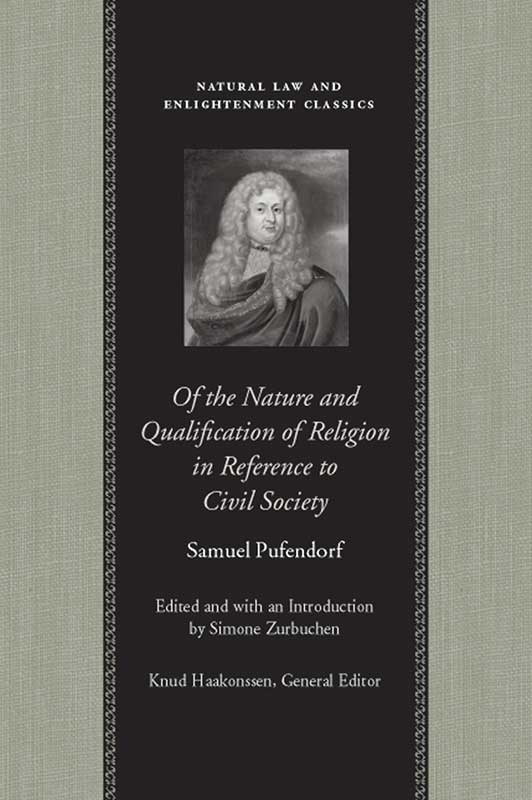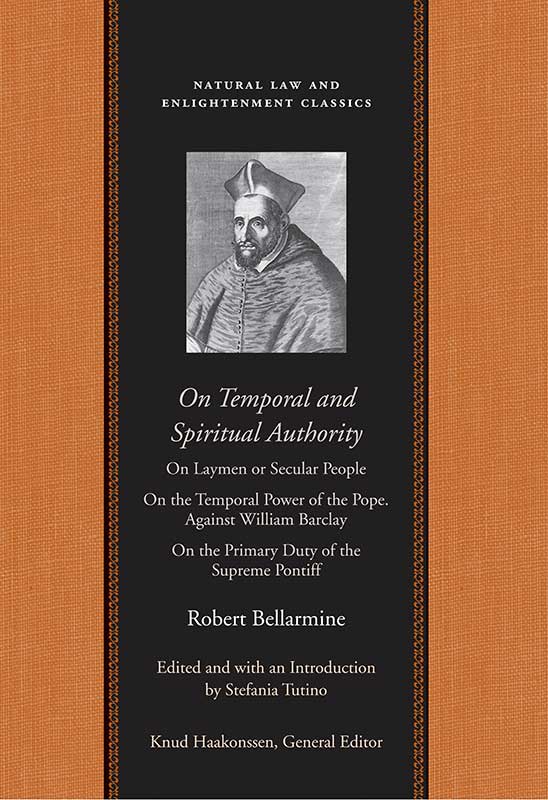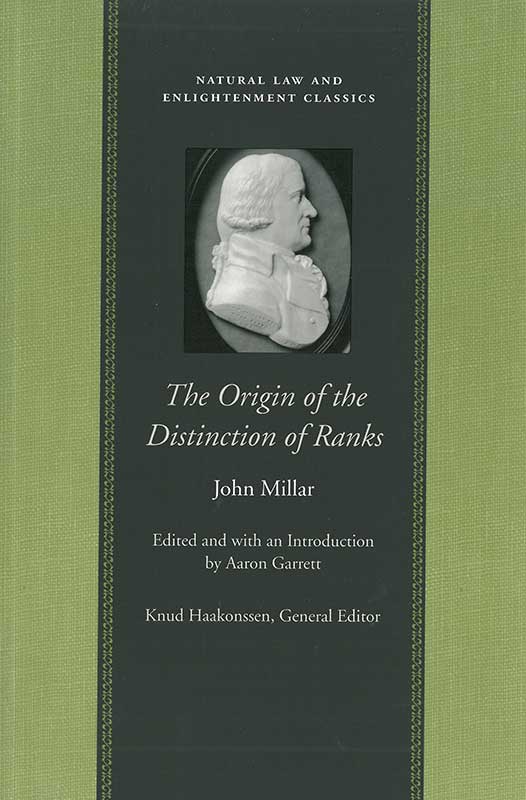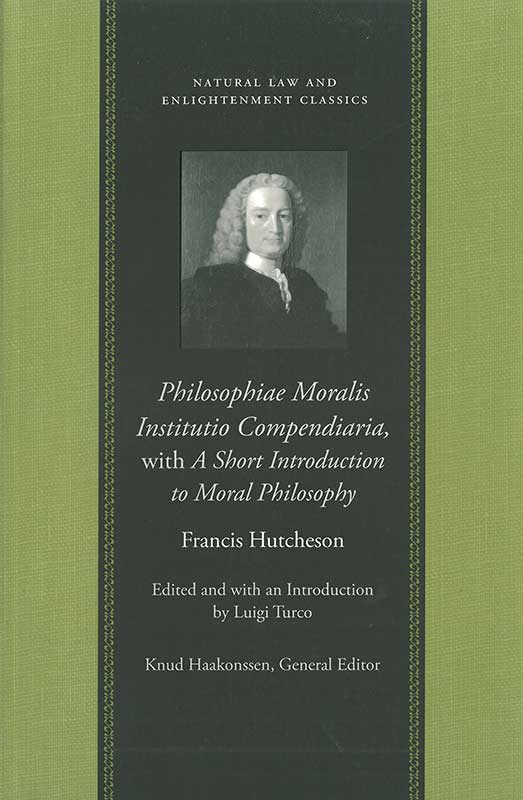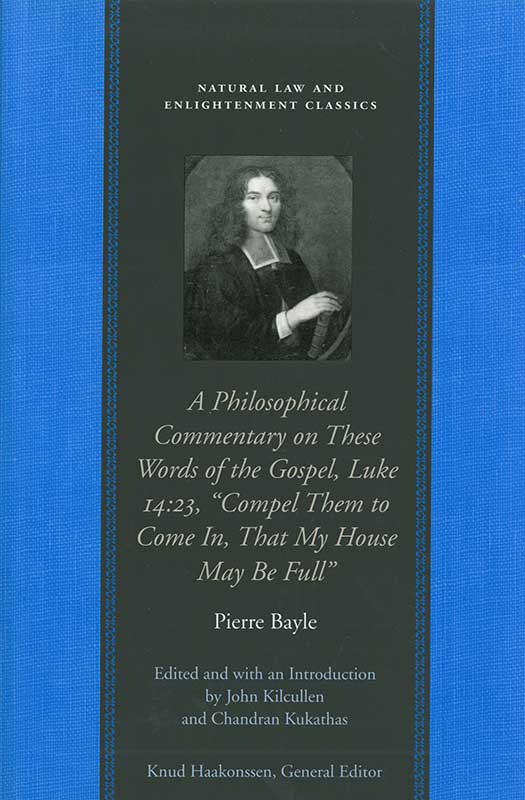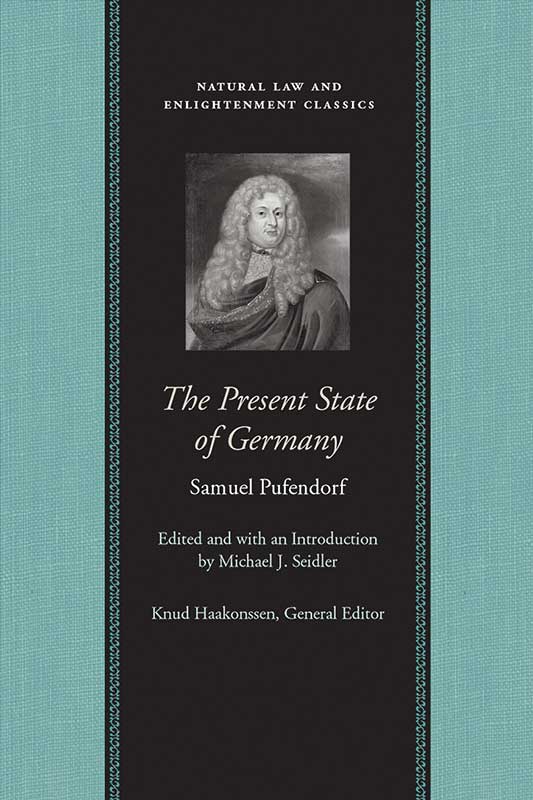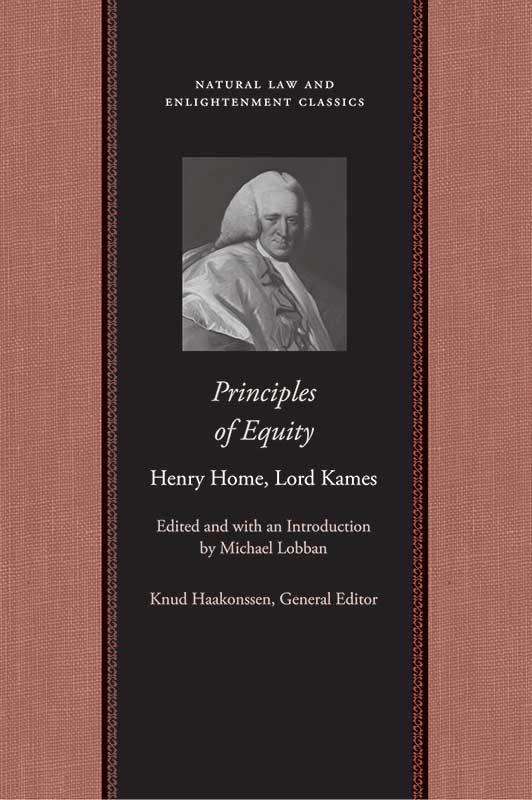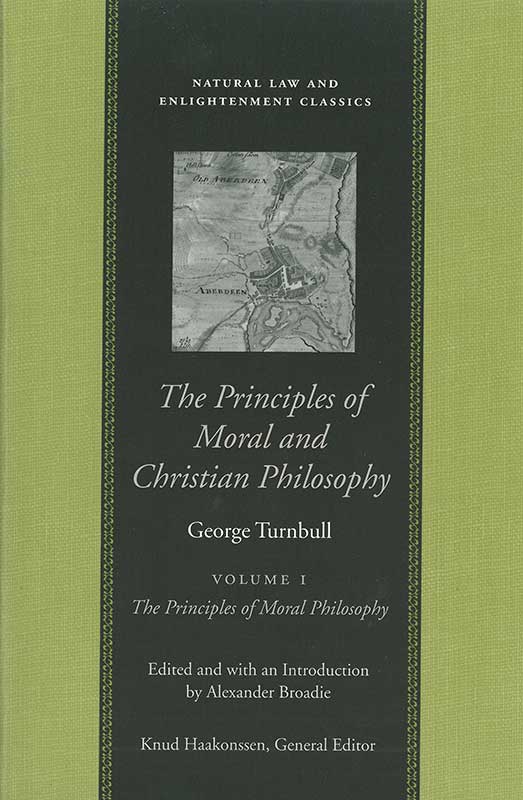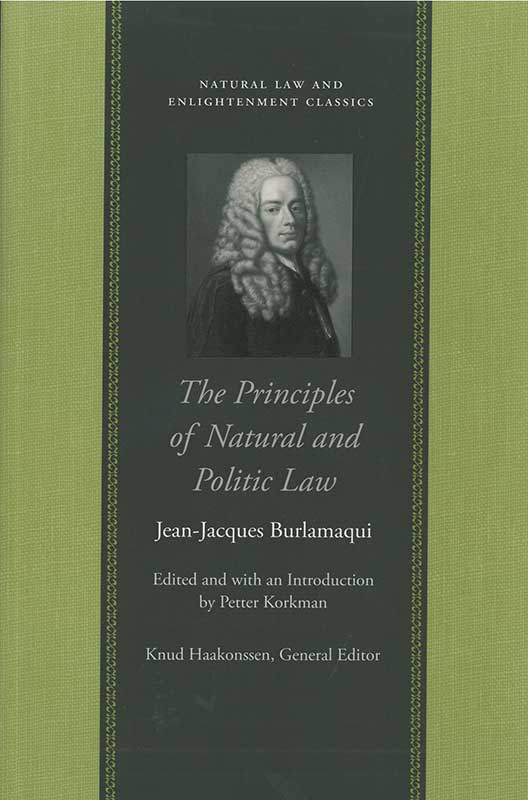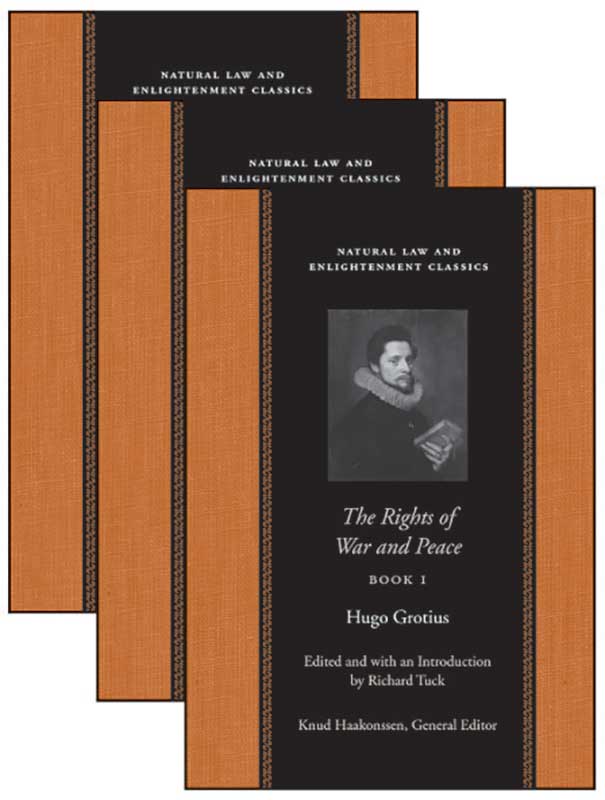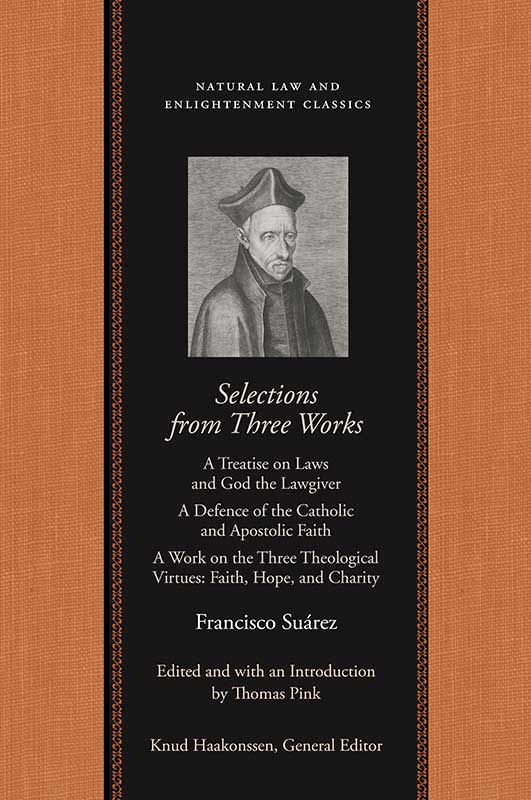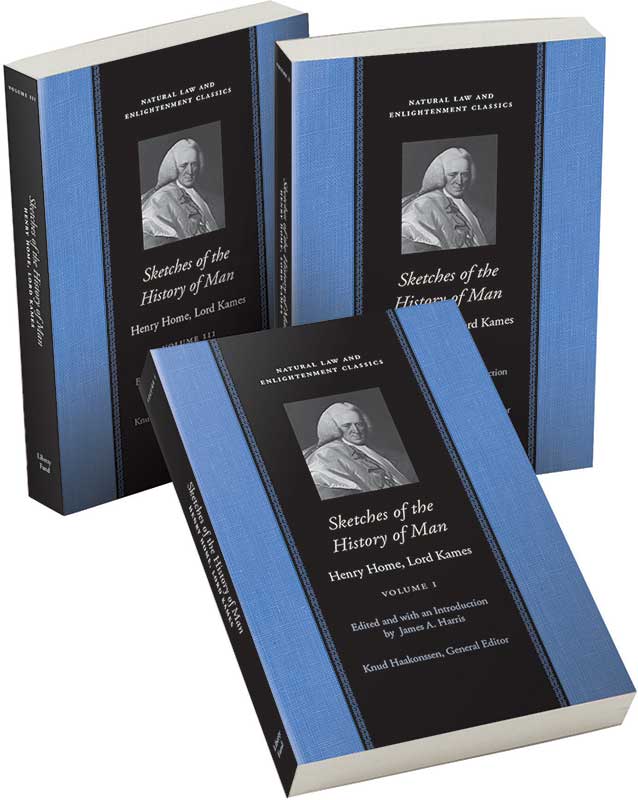Natural Law and Enlightenment Classics
-
Of the Nature and Qualification of Religion in Reference to Civil Society
by Samuel Pufendorf
/ Learn MoreSamuel Pufendorf’s Of the Nature and Qualification of Religion (published in Latin in 1687) is a major work on the separation of politics and religion. Written in response to the revocation of the Edict of Nantes by the French king Louis XIV, Pufendorf contests the right of the sovereign to control the religion of his subjects, because state and religion…
-
On Temporal and Spiritual Authority
by Robert Bellarmine
/ Learn MoreRobert Bellarmine was one of the most original and influential political theorists of his time. His writings present coherent definitions of the nature and aim of temporal authority and its relationship to spiritual authority. This fresh translation will be interesting to a wide readership of both scholars of political thought and the educated general public. Robert Bellarmine (1542–1621) was a…
-
The Origin of the Distinction of Ranks
by John Millar
/ Learn MoreThe Origin of the Distinction of Ranks is one of the major products of the Scottish Enlightenment and a masterpiece of jurisprudence and social theory. Drawing on Adam Smith’s four-stages theory of history and the natural law’s traditional division of domestic duties into those toward servants, children, and women, Millar provides a rich historical analysis of the ways in which…
-
Philosophiae Moralis Institutio Compendiaria, with A Short Introduction to Moral Philosophy
by Francis Hutcheson
/ Learn MoreIn this new, dual-language edition, Hutcheson’s Latin Philosophiae Moralis Institutio Compendiaria is presented on facing pages with its English translation, A Short Introduction to Moral Philosophy, together with all the relevant alterations of the 1745 edition relating to the 1742 edition of the Institutio, including all the omissions and additions by the translator in the Short Introduction. Francis Hutcheson (1694–1746)…
-
A Philosophical Commentary on These Words of the Gospel, Luke 14:23, “Compel Them to Come In, That My House May Be Full”
by Pierre Bayle
/ Learn MorePhilosophical Commentary deals with church and state, religious toleration, legal enforcement of religious practices, and religiously motivated violence. Pierre Bayle (1647–1706) was a Protestant philosopher and critic. John Kilcullen is Senior Research Fellow, Humanities, at Macquarie University, Sydney, Australia. Chandran Kukathas is Chair in Political Theory at The London School of Economics and Political Science, University of London.
-
The Present State of Germany
by Samuel Pufendorf
/ Learn MoreSamuel Pufendorf’s The Present State of Germany was first published in 1667 (under the pseudonym Severinus de Monzambano) and immediately became one of the most notorious works in Europe for the next half century. Its trenchant critique of previous theories of the Holy Roman Empire elicited both attacks and defenses, and it also anticipated many elements in Pufendorf’s subsequent writings…
-
Principles of Equity
by Henry Home, Lord Kames
/ Learn MoreHenry Home, Lord Kames, was the complete “Enlightenment man,” concerned with the full spectrum of human knowledge and its social use. However, as a lawyer and, after 1752, as a judge on the Court of Session in Edinburgh, he made many of his most distinctive contributions through his works on the nature of law and legal development. Principles of Equity,…
-
The Principles of Moral and Christian Philosophy
by George Turnbull
/ Learn MoreThe Principles of Moral and Christian Philosophy presents the first masterpiece of Scottish Common Sense philosophy. This two-volume treatise is important for its wide range of insights about the nature of the human mind, the foundations of morals, and the relationship between morality and religion. The first volume presents a detailed study of the faculties of the human mind and…
-
The Principles of Natural and Politic Law
by Jean-Jacques Burlamaqui
/ Learn MoreBorn in 1694, Jean-Jacques Burlamaqui helped transform the modern tradition of natural law and convey it to new generations. Jean-Jacques Burlamaqui (1694–1748) was a Swiss jurist. Petter Korkman is a Fellow at the Helsinki Collegium for Advanced Studies and is a Postdoctoral Researcher in Philosophy at the Academy of Finland.
-
The Rights of War and Peace
by Hugo Grotius
/ Learn MoreSince the nineteenth century, Hugo Grotius’s Rights of War and Peace has been the classic work in modern international law, laying the foundation for a universal code of law. Grotius’s continuing influence owed much to the eighteenth-century French editor Jean Barbeyrac, whose extensive commentary was standard in most editions, including the classic English one (1738), the basis for the Liberty…
-
Selections from Three Works
by Francisco Suárez
/ Learn MoreFrancisco Suárez (1548–1617) was the greatest metaphysician and moral theorist of sixteenth- and seventeenth-century scholasticism. Suárez is of particular importance as a theorist of natural law and of rights, for his work combines expertise in moral theory with a mastery of civil and ecclesiastical jurisprudence and a sophisticated theory of the human person. The bulk of the selections in this…
-
Sketches of the History of Man
by Lord (Henry Home) Kames
/ Learn MoreDivided into three books, Kames’s Sketches of the History of Man draws together the concerns of many of his earlier works. The first book considers man in the private sphere, while the second explores man in the public sphere. The final book is an account of progress in the sciences of logic, morals, and theology. Throughout the entire work, Kames…
35% OFF YOUR ENTIRE BOOK PURCHASE
With promo code:
SUMMER2025
Expires July 31, 2025

